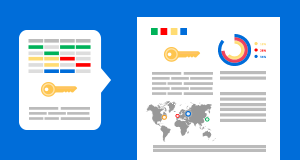The Official Google Blog has been restating the policy of Google at handling government interference in its products noting that Google products from search and Blogger to YouTube and Google Docs have been blocked in 25 of the 100 countries where Google offers its services.
The post explains that there are differences between how content is treated that is either linked to by Google search or hosted on a platform such as Blogger. Search is apparently the least restricted because Google is not taking responsibility for hosting the content. It also implies that censorship from democratically elected governments is more acceptable than that from undemocratically elected governments.
The post’s author, Rachel Whetstone, the Vice President of Global Communications and Public Affairs is concerned about the impact of censorship in various countries around the world. In restating the Google policy, she writes, “We have a bias in favor of people’s right to free expression. We are driven by a belief that more information means more choice, more freedom and ultimately more power for the individual.”
Stirring stuff indeed and these are indeed difficult waters to navigate, but freedom of expression comes with a certain responsbility. This is especially true when you are the doorway to people’s access to information in many languages and many cultures with many different histories around the globe.
For instance, the post actually gives examples of where Google is willingly censoring content in order to comply with local legislation. These include:
- Child pornography
- Links to certain copyrighted material
- Spam
- Malware
- Sensitive personal information such as credit card numbers
Says Google further, “This is especially true in countries such as China and Vietnam that do not have democratic processes through which citizens can challenge censorship mandates.”
Examples where Google is co-operating with governments to comply with local legislation are included but there is note of “We do this but we’re not happy with it” in the tone of the post because the point is highlighted that this only applies to the local version of Google search – not Google.com.
The examples that are given where censorship is exercised on the local search engine include pro-nazism content which it is illegal to publish in Germany and France (and actually Austria but that’s not mentioned) and for YouTube Google does not allow videos which are insulting to Mustafa Ataturk – the legendary founder of modern Turkey – to be displayed in Turkey.
Google’s policy, however, has holes. Pro-nazi material can be found on Google.com – because that is uncensored – but not on Google.de because that is considered local and is therefore censored. But this doesn’t stand up to scrutiny. Content from both is hosted and served typically from outside Germany and is available within Germany which means that if you go to Google.com within Germany you can access pro-nazi material. Equally, Google has the capability and routinely filters the sites it selects to show locally within the ‘web’ search of Google.com. so does this stance really respect local laws – noting that in this example Germany most certainly is a democratic country.
Google itself censors material it defines as ‘spam’ – which is difficult to define at the best of times -so is Google’s stance not really a political statement of itself. I fear Google will not be able to sustain this rather ‘holier than thou’ position and its commercial strength – as in China – may suffer in the long run.
Andy Atkins-Kruger
Latest posts by Andy Atkins-Kruger (see all)
- Launching our new concept – Webcertain In-house! - July 26, 2019
- Yes, the robots are here and they’re running Google Ads! - April 10, 2019
- Be prepared: A personal message from Webcertain’s CEO - May 15, 2018





Don’t you think the strategy to integrate language calling for the free flow of information into WTO negotiations in too long- term? Google needs some short-term wins on a regional basis. As I told Adam Kovacevich yesterday, perhaps Google should approach the OAS and ASEAN to make progress in this area. The OAS has language in its charter to support human rights, social and political objectives.